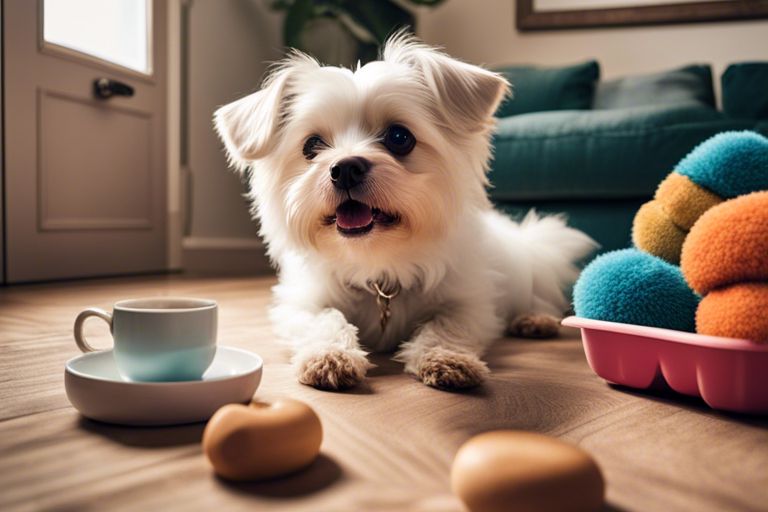Greetings! Do you ever find yourself baffled by your Labrador Retriever’s constant drooling? It may seem like a never-ending waterfall of slobber, leaving you wondering if it’s something to be concerned about. Well, fear not, because in this blog post, we will explore the topic of excessive mouth salivation in Labrador Retrievers, and help you understand whether or not you should be worried about it. So, sit back, relax, and let’s dive into the world of doggy drool!
Reasons Behind Excessive Salivation
By now, you may be wondering why your beloved Labrador Retriever is experiencing excessive mouth salivation. Although it can sometimes be normal for dogs to drool, an excessive amount may indicate an underlying issue that needs attention. In this chapter, we will explore some of the reasons behind this excessive salivation, helping you gain a better understanding of your furry companion’s potential health concerns.
Overview of Health Conditions
One possible reason for your Labrador Retriever’s excessive saliva production could be related to certain health conditions. Infections such as gingivitis, dental abscesses, or mouth ulcers can cause discomfort, leading to increased drooling. Additionally, oral tumors or masses can be a potential cause of excessive salivation. If you notice any unusual growths or sores in your dog’s mouth, it’s important to have them examined by a veterinarian.
Introducing Dietary Factors
Another factor to consider is your Labrador’s diet. Certain food items and eating habits can contribute to excessive salivation. If you have recently switched your dog’s food, it’s possible that their new diet could be causing an adverse reaction. Allergies or sensitivities to specific ingredients can manifest as excessive drooling. Additionally, if your Labrador tends to gobble down their food too quickly, this can also lead to excessive salivation. In such cases, using slow-feeding bowls or providing smaller, more frequent meals can help alleviate the issue.
- Allergies: Food allergies can trigger excessive salivation in Labradors. Keep an eye out for any signs of itching, redness, or gastrointestinal disturbances, as these can indicate an allergic reaction.
- Sensitivities: Some Labradors may have specific sensitivities to certain ingredients, such as grains or certain proteins. Experimenting with different types of dog food can help identify and resolve any specific sensitivities your furry friend might have.
- Poor eating habits: If your Labrador Retriever tends to eat too quickly, it can cause them to salivate excessively. This can be resolved by using specially designed slow-feeding bowls or breaking their meals into smaller, more frequent portions.
Understanding the potential health conditions and dietary factors that could contribute to your Labrador Retriever’s excessive mouth salivation is the first step in addressing the issue. By identifying the underlying cause, you can work with your veterinarian to develop an appropriate plan to ensure your furry friend’s optimal health and well-being.
Impacts of Excessive Salivation on Your Labrador Retriever
Now that we understand the reasons behind your Labrador Retriever’s excessive mouth salivation, let’s discuss the potential impacts it can have on your furry friend’s well-being. Excessive salivation can affect both your Labrador’s physical health and their behavioral and mental state.
Physical Effects
Excessive mouth salivation in Labrador Retrievers can lead to a range of physical effects. One potential consequence is dehydration, as excessive drooling can cause your dog to lose fluids at a faster rate. Dehydration can be serious and may result in symptoms such as lethargy, dry gums, and loss of appetite. It’s important to keep an eye on your Labrador’s water intake and make sure they have access to fresh water throughout the day when dealing with excess salivation.
Behavioral and Mental Consequences
Aside from the physical impact, excessive salivation can also result in behavioral and mental consequences for your Labrador Retriever. Constant drooling can make your dog feel uncomfortable, leading to increased paw licking and face wiping. This behavior may indicate anxiety or distress caused by the excessive salivation. Furthermore, your Labrador’s excessive drooling may draw unwanted attention from other dogs or people, potentially leading to social stress and unease in your furry companion.
Regardless of whether your Labrador’s excessive mouth salivation is due to a medical condition or simply a natural trait, it’s crucial to be aware of the potential impacts it can have on their overall well-being. By keeping a close eye on your dog’s physical health and addressing any behavioral changes you notice, you can ensure their happiness and comfort.
Ways to Manage Your Labrador Retriever’s Salivation
While excessive mouth salivation in your Labrador Retriever might not always be a cause for concern, it’s still important to manage this issue to ensure your pet’s comfort and health. Here are some effective ways to help you deal with your Labrador’s excessive salivation.
Proper Training Techniques
Proper training techniques can play a significant role in managing your Labrador Retriever’s excessive mouth salivation. By incorporating a few simple strategies into your training routine, you can help your furry friend understand and control their salivation. Firstly, it’s crucial to teach your Labrador the “Leave It” command. This command will enable you to redirect their attention away from things that trigger excessive drooling. Additionally, teaching them the “Stay” command will help maintain a calm and relaxed demeanor, reducing anxiety-induced drooling. Consistency and positive reinforcement are key to successfully training your Labrador to manage their salivation.
Vet-Recommended Solutions
If your Labrador Retriever’s excessive salivation persists despite training efforts, it might be beneficial to consult with your veterinarian for professional guidance. Your vet may recommend various solutions tailored specifically to your Labrador’s needs. One potential solution is using specialized feeding bowls designed to slow down eating and reduce drooling. Additionally, your vet might prescribe medications that can help alleviate underlying medical conditions contributing to excessive salivation. Remember, your veterinarian is a reliable source of information and can assist you in finding the most appropriate solutions for your beloved Labrador.
Conclusion
So, should you be concerned about your Labrador Retriever’s excessive mouth salivation? By understanding the potential causes and taking the necessary steps to address them, you can ensure the health and well-being of your furry friend. With regular dental care, a balanced diet, and proper hydration, you can help manage your Labrador’s salivation and keep their mouth healthy. Remember to consult with your veterinarian if you have any concerns or notice any additional symptoms. Your Labrador’s happiness and comfort are worth the effort, and by staying proactive, you can provide them with the best possible care.
FAQ
Q: Why is my Labrador Retriever experiencing excessive mouth salivation?
A: Excessive mouth salivation in Labradors can be caused by various factors, such as excitement, anticipation of food, heat, anxiety, or certain health conditions. It’s important to monitor their behavior and physical well-being to determine the underlying cause.
Q: How can I tell if my Labrador’s excessive mouth salivation is normal or a cause for concern?
A: While some drooling is normal for Labradors, excessive and persistent drooling beyond what is typical for your dog may be a cause for concern. If your Labrador is experiencing other symptoms like difficulty eating, changes in appetite, or lethargy, it’s advisable to consult a veterinarian to rule out any potential health issues.
Q: Are there any specific health conditions that can cause excessive mouth salivation in Labradors?
A: Yes, there are certain health conditions that can contribute to excessive mouth salivation in Labradors. These may include dental problems, mouth ulcers, oral infections, heatstroke, poisoning, nausea, or neurological issues. Consulting with a veterinarian can help determine the exact cause and provide appropriate treatment.
Q: Can stress or anxiety be a reason behind my Labrador’s excessive mouth salivation?
A: Yes, stress and anxiety can indeed lead to excessive mouth salivation in Labradors. Just like humans, dogs can also experience anxiety or stress due to various reasons, such as changes in their environment, separation anxiety, or fear of loud noises. If you suspect stress or anxiety as the cause, providing a calm and secure environment along with behavioral training or professional guidance can help alleviate the issue.
Q: How can I help manage my Labrador’s excessive mouth salivation?
A: Depending on the underlying cause, there are several ways to manage your Labrador’s excessive mouth salivation. It’s crucial to maintain good oral hygiene, including regular dental check-ups and cleaning. Additionally, ensuring your dog stays cool and hydrated in hot weather, providing a calm and stress-free environment, and addressing any potential health issues suggested by a veterinarian can all help manage excessive mouth salivation effectively.

